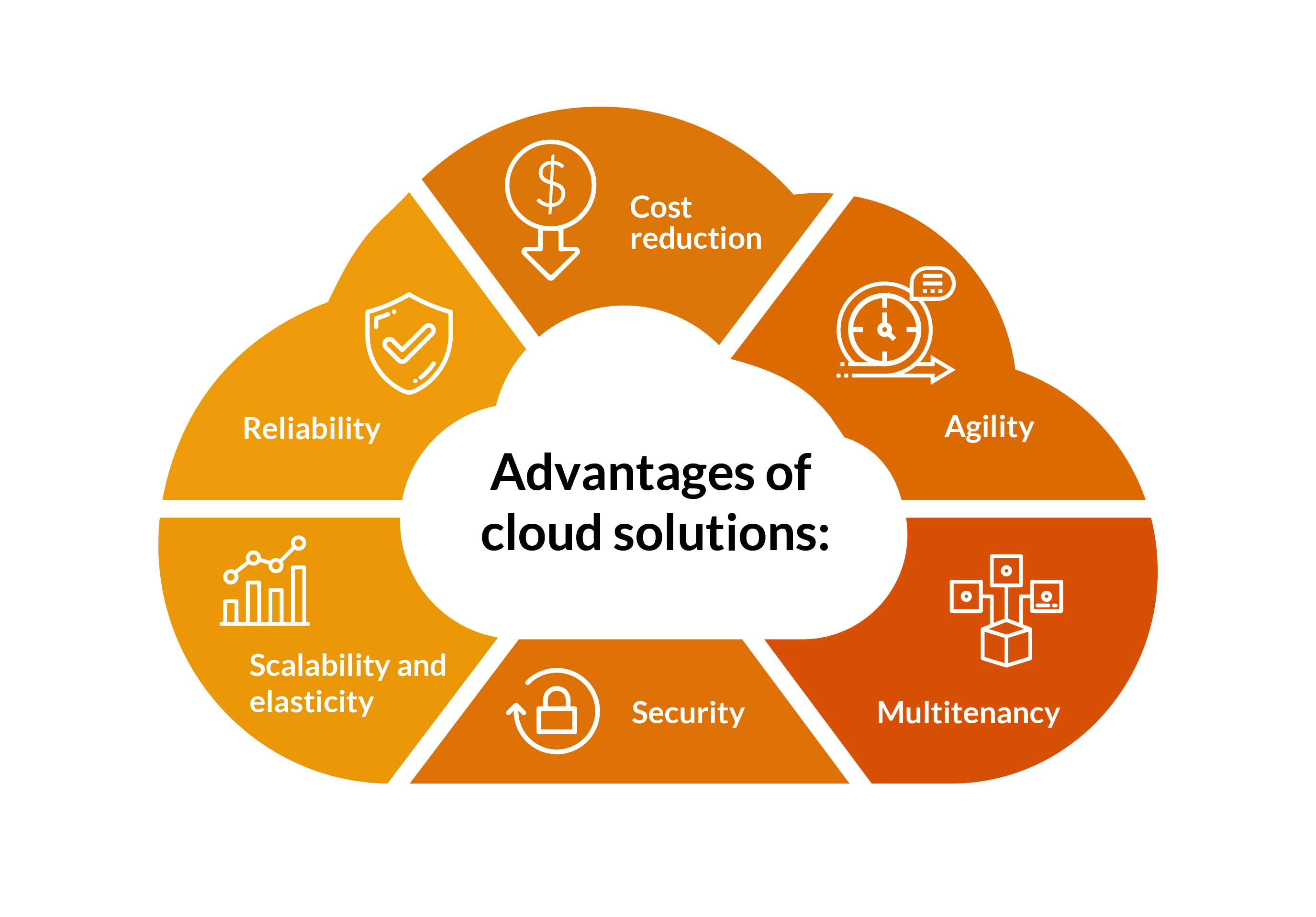Streamline IT Monitoring With Cloud Provider
Cloud solutions have emerged as a practical service for businesses looking to boost efficiency, lower expenses, and improve total IT performance. Just how precisely do these cloud solutions reinvent conventional IT management practices? Allow's check out the transformative effect of leveraging cloud services on IT operations and the crucial considerations for successful execution.
Benefits of Cloud Solutions

In addition, cloud services allow organizations to improve their functional performance by simplifying procedures and decreasing the time and sources needed for managing IT infrastructure. With cloud solutions, organizations can automate regular tasks, such as software application updates and data back-ups, releasing up IT groups to focus on even more critical campaigns that drive service value.

Boosted Scalability and Flexibility
Cloud services offer services with unmatched scalability and adaptability in handling their IT sources successfully. With cloud services, companies can swiftly scale up or down their computing sources, storage space ability, and network transmission capacity to meet changing needs without the need for substantial upfront investments in hardware.
In addition, cloud solutions offer the adaptability to choose from a selection of solution models, such as Facilities as a Service (IaaS), System as a Solution (PaaS), or Software as a Solution (SaaS), based on the certain requirements of the company. The improved scalability and flexibility supplied by cloud services encourage services to enhance their IT procedures and remain dexterous in today's dynamic market atmosphere.
Cost-Effectiveness and Cost Savings
With the ability to successfully assign sources based on need, companies making use of cloud solutions can harness substantial cost-effectiveness and realize considerable savings in their IT procedures. Cloud solutions provide a pay-as-you-go version, enabling firms to only pay for the sources they make use of, eliminating the requirement for huge upfront financial investments in equipment and software program. This scalability makes certain that companies can conveniently adapt to varying needs without spending beyond your means on unnecessary resources. Furthermore, cloud solutions minimize maintenance expenses by changing the responsibility of equipment upkeep and software application updates to the company. This reduces the need for committed IT personnel to take care of infrastructure, further reducing functional expenditures. The cloud provides economies of scale, with suppliers spreading out expenses throughout several clients, resulting in lower private expenses for solutions like storage space and computer power. On the whole, the cost-effectiveness and financial savings attained via cloud solutions make it possible for organizations to reapportion sources in the direction of technology and development efforts.
Improved Safety And Security and Conformity
Enhancing the overall security stance and making sure regulatory conformity are critical factors to consider for companies leveraging cloud solutions in their IT management methods. Cloud provider supply sophisticated protection steps, such as information file encryption, multi-factor verification, and automated backups, which can strengthen a business's protection framework. These service providers additionally adhere to rigid regulatory criteria, such as GDPR, HIPAA, and PCI DSS, aiding businesses satisfy conformity requirements a lot more effectively.
Executing cloud services can boost safety and security look at this website by giving centralized control over gain access to administration, surveillance, and data protection. This centralized method streamlines protection management and makes sure regular application of security policies across the organization. Cloud services frequently use real-time protection updates and spots, reducing the risk of vulnerabilities and prospective violations.
Best Practices for Cloud Application
Carrying out cloud solutions effectively needs an organized strategy that encompasses complete planning and thorough execution. To make sure a smooth shift to the cloud, organizations must start by performing a thorough evaluation of their existing IT framework and recognizing which work are ideal for movement. It is important to develop clear goals and define crucial efficiency signs (KPIs) to measure the success of the cloud implementation.
Among the finest techniques recommended you read for cloud application is to thoroughly pick a cloud provider that lines up with the organization's demands in terms of safety, scalability, compliance, and cost-effectiveness. Additionally, producing a detailed migration strategy that describes the steps included, timelines, and responsibilities is important for an effective application.
Routinely enhancing and checking cloud resources to make sure reliable performance and expense monitoring is another important aspect of cloud implementation best methods. Continual evaluation of the cloud atmosphere and remaining educated regarding updates and new functions used by the cloud service provider can additionally boost the company's cloud strategy. By following these ideal practices, organizations can improve their IT administration and make the most of the benefits of cloud services.
Final Thought
In final thought, leveraging cloud services for IT monitoring supplies countless advantages, including enhanced scalability, cost-effectiveness, boosted protection, and conformity. In general, cloud services boost functional effectiveness and agility in handling IT facilities.
Additionally, cloud solutions supply the versatility to choose from a variety of solution designs, such as Infrastructure as a Solution (IaaS), Platform as a Service (PaaS), or Software Program as a Service (SaaS), based on the details requirements of the company. Additionally, cloud solutions reduce maintenance prices by moving the responsibility of equipment upkeep and software updates to the service provider.Enhancing the total safety pose and guaranteeing regulatory conformity are paramount factors to consider for services leveraging cloud services in their IT monitoring approaches.Routinely keeping track of and optimizing cloud sources to ensure effective performance and cost administration is another essential aspect of cloud application ideal practices. Continual assessment of the cloud setting and staying notified regarding updates you can try here and brand-new features supplied by the cloud supplier can further improve the organization's cloud method.